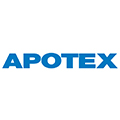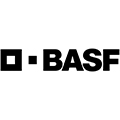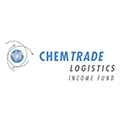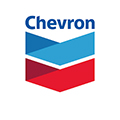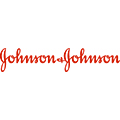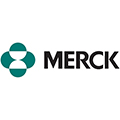
Overview
Organic chemistry is a branch of chemistry that focuses on the study of carbon-containing compounds, which are also known as organic compounds. These compounds form the basis of life and are found in a wide range of materials, including living organisms, fuels, plastics, pharmaceuticals, and more. Organic chemistry is concerned with understanding the structure, properties, reactions, and synthesis of these carbon-based compounds. The unique aspect of organic chemistry is the carbon atom’s ability to form diverse and complex molecules due to its ability to bond with other carbon atoms and different elements in various ways. This versatility gives rise to an immense variety of organic molecules with distinct shapes, sizes, and functions. Organic chemists study the interactions and transformations of organic compounds, aiming to uncover the underlying principles that govern chemical reactivity. This knowledge is crucial for developing new materials, designing pharmaceuticals, understanding biological processes, and addressing environmental and sustainability challenges. Organic chemistry plays a vital role in many industries, including pharmaceuticals, agriculture, materials science, and more.
Depending on specific features and functions, GAO Tek’s ion meters are sometimes referred to as Ion-selective electrode (ISE) meters, Ion-specific electrode meters, pH meters, Ion concentration meters, ISE meters, Electrochemical meters, Potentiometric meters, Ion analyzer, Ion measurement systems, Ion-sensitive field-effect transistor (ISFET) meters.
GAO Tek’s ion meters have the following applications in Organic Chemistry Field:
- pH Measurement: pH is a crucial parameter in many organic chemical reactions and processes. GAO Tek’s ion meters equipped with pH-sensitive electrodes are used to accurately measure the acidity or alkalinity of solutions, aiding in determining reaction conditions, optimizing synthesis, and studying enzyme kinetics.
- Ion Concentration Determination: GAO Tek’s ion meters are employed to measure the concentrations of various ions, such as sodium, potassium, calcium, chloride, and nitrate ions. These measurements are critical for understanding ion transport, ion exchange processes, and ion-related reactions in organic systems.
- Ion-Selective Electrodes: Specific ion-selective electrodes are designed to measure the concentration of particular ions. For example, fluoride ion-selective electrodes are used to monitor fluoride ion concentrations, which is important in areas like dental research and fluoride-containing compound analysis.
- Medicinal Chemistry: Our ion meters are used to determine the concentration of ions in pharmaceutical formulations, helping to ensure the quality and stability of drugs. They are also used in research to study the behavior of ions in biological systems and their interactions with organic molecules.
- Environmental Monitoring: Organic chemists often study the presence and behavior of ions in environmental samples, such as water and soil. GAO’s ion meters aid in monitoring pollutant ions, studying ion-driven chemical reactions, and assessing the impact of ions on ecosystems.
- Polymer Chemistry: GAO Tek’s ion meters can be used to monitor the ion concentration during polymerization processes, helping to understand the polymerization kinetics and controlling the quality of the resulting polymers.
- Electrochemical Analysis: Our ion meters are commonly used in electrochemical studies to investigate the electrochemical behavior of organic compounds. This includes cyclic voltammetry, impedance spectroscopy, and other electrochemical techniques used to study redox reactions and electron transfer processes.
- Biosensing: In the field of biosensors, GAO Tek’s ion-selective electrodes are integrated with biological recognition elements to create devices capable of detecting specific ions related to biological processes, such as enzyme activity, metabolic pathways, and cell signaling.
- Food and Beverage Industry: GAO Tek’s ion meters are utilized in the analysis of food and beverages to determine ion concentrations, assess quality, and monitor regulatory compliance.
- Research and Development: Our ion meters are fundamental tools in organic chemistry research labs, aiding in the characterization of new compounds, studying reaction mechanisms, and optimizing reaction conditions.
More information on ion meters and their applications in other industries can be found on this page.
This category page lists related products.
Complying with Industry Standards
GAO Tek’s ion meters comply or help our customers comply with the industry standards such as:
- ISO 17025
- ASTM D1293
- ASTM D5128
- ASTM D1294
- USP Chapter <791>
- USP Chapter <645>
- USP Chapter <221>
- ISO 7888: Laboratory equipment
- ISO 9047
- ISO 3165
- AOAC Official Methods of Analysis
Complying with Government Regulations
GAO Tek’s ion meters comply or help our customers comply with the U.S. government regulations such as:
- Environmental Protection Agency (EPA) Regulations.
- Good Laboratory Practice (GLP) Regulations.
- Good Manufacturing Practice (GMP) Regulations.
- OSHA Hazard Communication Standard.
- OSHA Laboratory Standard.
- FDA Regulations.
- USP and ASTM Standards.
- Chemical Safety Board (CSB) Recommendations.
GAO Tek’s ion meters comply or help our clients comply with the Canadian regulations such as:
- Canada Labour Code – Part II.
- Hazardous Products Act and Hazardous Products Regulations (WHMIS).
- Laboratory Safety Guidelines.
- Canadian Environmental Protection Act, 1999.
- Health Canada Regulations.
- Standards Council of Canada (SCC).
- Canadian Standards Association (CSA).
- Workplace Safety and Insurance Board (WSIB).
- Transport of Dangerous Goods Regulations.
Case Studies of Ion Meters in Organic Chemistry Field
Ion Meters is sometimes called as Ion-selective electrode (ISE) meters, Ion-specific electrode meters, pH meters, Ion concentration meters, ISE meters, Electrochemical meters, Potentiometric meters, Ion analyzer, Ion measurement systems, Ion-sensitive field-effect transistor (ISFET) meters.
Here are some practical examples of using ion meters in organic chemistry field:
- Environmental Monitoring: Organic chemistry laboratories in the Northeast might use ion meters to monitor water quality in nearby bodies of water. This could involve measuring pH, conductivity, and specific ion concentrations to assess the impact of pollutants or other compounds on aquatic ecosystems.
- pH Studies in Biochemical Reactions: Researchers in organic chemistry might use ion meters to monitor pH changes during enzymatic reactions or other biochemical processes. This can provide insights into the mechanisms and optimal conditions for these reactions.
- Quality Control in Pharmaceuticals: Pharmaceutical companies in the Northeast might use ion meters for quality control during the synthesis and manufacturing of organic compounds. Ion meters could be used to ensure the proper pH and ionic composition of pharmaceutical products.
- Polymerization Reactions: Organic chemists working on polymer synthesis might use ion meters to monitor the ion concentration changes during polymerization reactions. This information can aid in understanding reaction kinetics and optimizing polymer properties.
- Analysis of Organic Acids/Bases: Ion meters can be used to measure the concentrations of organic acids and bases, which are important in various industrial and research applications. For instance, analyzing the concentration of organic acids in food and beverages to assess quality and safety.
- Ion Transport in Biological Systems: Researchers might study ion transport across biological membranes using ion-selective electrodes. This could be relevant to understanding processes like ion channels, cell signaling, and drug interactions.
- Electrochemical Analysis of Organic Compounds: Ion meters equipped with appropriate electrodes can be used for electrochemical analysis of organic compounds. This might involve studying redox reactions, electron transfer processes, and electroactive organic molecules.
- Food and Beverage Analysis: Organic chemists in the Northeast might use ion meters to analyze ion concentrations in food and beverages, helping to ensure compliance with safety and quality standards.
- Environmental Remediation Studies: Ion meters could be employed in studies related to environmental remediation, where researchers investigate the effectiveness of organic compound degradation and removal using ion-selective electrodes.
- Ionic Liquid Studies: Ionic liquids, which are organic salts that are liquid at room temperature, have various applications in chemistry. Researchers might use ion meters to study their properties and behavior.
- Biological and Biochemical Studies: Ion meters might be employed in Canadian labs studying biochemical reactions, enzyme kinetics, and metabolic pathways. Monitoring pH changes and ion concentrations can provide insights into these processes.
- Pharmaceutical Quality Control: Canadian pharmaceutical companies might use ion meters for quality control purposes, ensuring the proper ion concentrations and pH levels in pharmaceutical products.
- Analysis of Soil and Agricultural Products: Ion meters can be used to assess soil quality, including pH and ion content, which can impact agricultural productivity. They can also be applied to analyze ion concentrations in crops and agricultural products.
- Water Treatment and Analysis: In Canada, ion meters could be utilized for monitoring and optimizing water treatment processes, including assessing the effectiveness of ion exchange and purification methods.
- Battery and Energy Storage Research: Researchers studying battery materials and energy storage might use ion meters to analyze ion transport and behavior in different materials, aiding in the development of improved energy storage technologies.
- Ionic Liquid Studies: As with other regions, Canadian researchers might use ion meters to study the properties and behavior of ionic liquids, which have applications in various areas of organic chemistry.
- Electrochemical Sensor Development: Canadian researchers could focus on developing new types of ion-selective electrodes and sensors for specific applications, which might involve characterizing the performance of these sensors using ion meters.
GAO RFID Inc. a sister company of GAO Tek Inc., is ranked as a top 10 RFID suppliers in the world. Its RFID, BLE, and IoT products have also been widely used in Organic chemistry field.
Use of Ion Meters with Leading Software and Cloud Services in Organic chemistry field
GAO Tek has used or has facilitated its customers to use GAO’s ion meters with some of the leading software and cloud services in their applications. Examples of such leading software and cloud services include:
- Thermo Fisher Scientific’s Dionex Chromeleon.
- Metrohm MagIC Net.
- Mettler Toledo LabX.
- Yokogawa YS1000 Series.
- Gamry Instruments Framework Software Suite.
- HORIBA LabSolutions.
- Nova Analytics LabStart.
- Thales Software.
- Mettler Toledo InLab.
- Python/R with Data Analysis Libraries.
- Microsoft Power BI.
- Thermo Fisher™ Core LIMS.
- Amazon Web Services (AWS).
- COMSOL Multiphysics Cloud.
GAO Tek’s ion meters and their applications in other industries are listed on this page.
Other related products can be found at this category page.
GAO Has Many Customers in Organic Chemistry Field
The products from both GAO Tek Inc. and GAO RFID Inc. have been widely used in Organic Chemistry Field by many customers, including some leading companies. Here is more information on applications of GAO RFID Inc.’s ion meters in organic chemistry field.
Chemical & Life Sciences Products
Here are some of the leading companies in organic chemistry field:
- Pfizer In.
- Merck & Co., Inc. (MSD).
- Bristol Myers Squibb (BMS).
- Eli Lilly and Company.
- Johnson & Johnson.
- Regeneron Pharmaceuticals.
- AbbVie Inc.
- Baxter International Inc.
- Chevron Corporation.
- BASF Corporation.
- Valero Energy Corporation.
- LyondellBasell Industries.
- The Clorox Company.
- Intel Corporation.
- Apotex Inc.
- Mallinckrodt Pharmaceuticals (Canada)
- Teva Canada.
- Aurinia Pharmaceuticals.
- Sangoma Technologies.
- Chemtrade Logistics.



